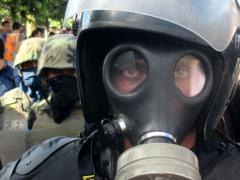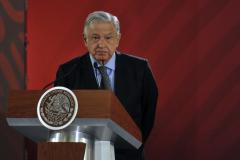On November 28, Panama’s Supreme Court ruled a new contract with the Canadian firm operating Central America’s largest open-pit copper mine to be unconstitutional. Panamanians celebrated outside the Supreme Court building, cheering and waving the Panamanian flag. The ruling offered some closure to more than a month of street protests and roadblocks that had shut down major portions of the country. In several states, propane and gas ran out, and many supermarket shelves were left empty. Organized by unions, teachers, students, and Indigenous movements, the protests were the largest the country had seen in decades. Those in the streets said they would not stop until the mining contract was revoked.
The protests engulfed the country on October 23, after Congress fast-tracked the approval of a new contract and President Laurentino Cortizo quickly signed it into law. Government officials and allies said the contract would bring Panama windfall profits. The mine, run by the Canadian corporation First Quantum, has extracted roughly 300,000 tons of copper a year since beginning commercial operations in 2019, which accounts for roughly 5 percent of Panama’s GDP. Under a previous contract with the government, First Quantum paid the state $35 million a year in royalties for the right to mine. Under the new 20-year contract, that figure was increased 10-fold. But the demonstrators who took to the streets said the contract was a handout to a major foreign corporation—a slap in the face that would threaten Panamanian sovereignty, destroy the environment, and pollute Panamanian rivers in a time of drought.
In the days after the Supreme Court decision, I spoke with Central America Studies scholar and NACLA Editorial Committee member Jorge Cuéllar about the impact the huge anti-mining protests and the court ruling could have abroad. Cuellar is an Assistant Professor in the Department of Latin American, Latino, and Caribbean Studies at Dartmouth College. He has written often about popular struggles and mass movements in Panama and across Central America. Our conversation has been lightly edited for length and clarity.
Michael Fox: What kind of an impact do you think this ruling could have for foreign companies doing business in Panama and particularly in areas like mining?
Jorge Cuéllar: For me, the court ruling against the copper mine sets a precedent that foreign companies can't come into places like Panama that have been historically friendly to transnational capital, and extractive capital specifically, and do what they want with the state. Because people have stepped in to curb some of the most extreme excesses of this extractive industry.
For Panama, which considers itself a kind of natural patrimony for the world that offers a kind of eco-friendly experience—eco-tourism, natural beauty, and very unique biomes—this mine really was antithetical to that vision and that national identity that Panamanians themselves have taken up and become very proud of. The mine really stood against that vision.
And so, when foreign companies come in and try to extract copper that is going to get shipped elsewhere like China and the Near East, where it'll be processed, a lot of the capital and value generated from that raw material is not going to come back to Panama. That is not perceived to be a good deal for Panamanians.
The protest that shut down the Pan-American Highway was precisely about this: that companies are taking advantage of lax rules. And they're not leaving anything positive for Panamanians. This is a generational argument that that social movements are making because mining very much represents a short-term interest. It’s something that might generate employment and capital in the near term. But what about the irreparable destruction of the natural environment? This is the contradiction that social movements have pointed out and that they won’t stand for it any longer.



